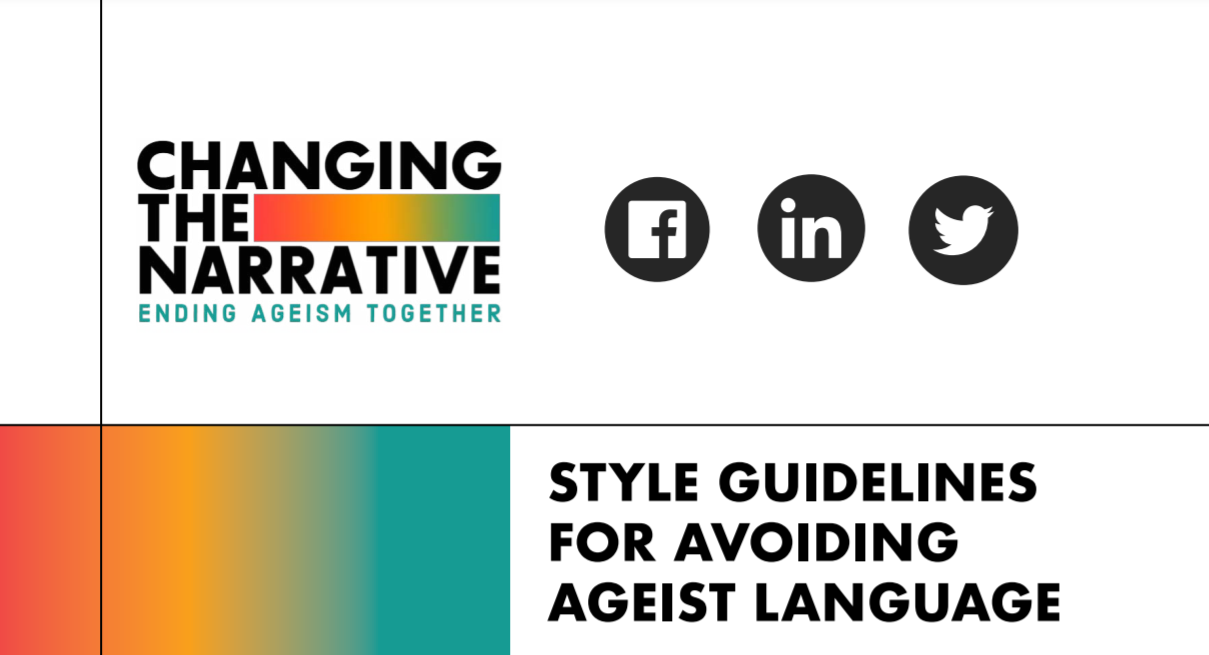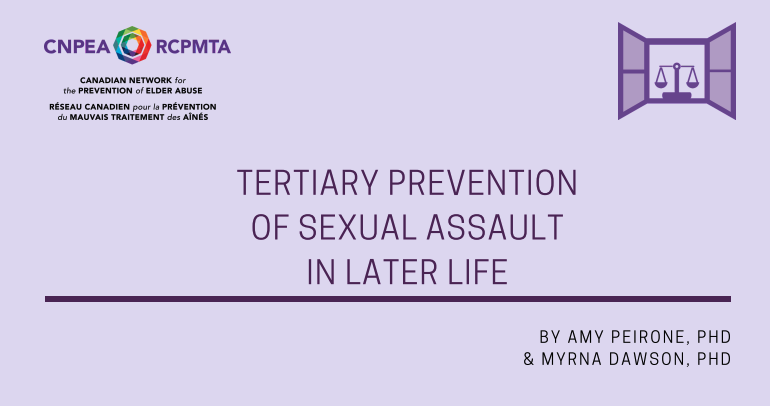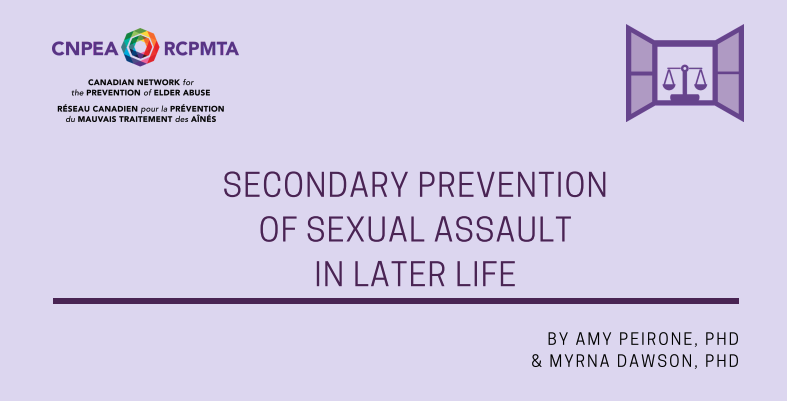Brochures and Factsheets
STYLE GUIDELINES FOR AVOIDING AGEIST LANGUAGE
 A short, easy guide to help keep ageism out of your writing. These guidelines for age-inclusive communications address:
A short, easy guide to help keep ageism out of your writing. These guidelines for age-inclusive communications address:
- What is ageism and why should we care?
- Terminology to avoid and preferable terms
- Ageist imagery vs age-positive images
- Avoiding Ageist Storylines
Source: Changing the Narrative
 No one is immune to the psychological toll of COVID-19-related restrictions. For older adults, however, the heightened fear of contracting the virus, a sudden decrease in connectivity, or the loss of outside support can make their situation more difficult.
No one is immune to the psychological toll of COVID-19-related restrictions. For older adults, however, the heightened fear of contracting the virus, a sudden decrease in connectivity, or the loss of outside support can make their situation more difficult.
To help self-isolating seniors who are at home during the pandemic, the Mental Health Commission of Canada (MHCC) asked Dr. Keri-Leigh Cassidy, professor of psychiatry at Dalhousie University and founder of the Fountain of Health optimal aging initiative, to share some practical advice on how to deal with the challenges of COVID-19.
 "While COVID-19 has amplified conversations about mental well-being, some older adults may be unwilling or unable to discuss how the pandemic has affected them psychologically. This difficulty poses a unique challenge for informal caregivers who are concerned for the mental well-being of loved ones. If you’re caring for an older adult who may be experiencing a decline in their mental well-being during the pandemic, the following tips may be helpful."
"While COVID-19 has amplified conversations about mental well-being, some older adults may be unwilling or unable to discuss how the pandemic has affected them psychologically. This difficulty poses a unique challenge for informal caregivers who are concerned for the mental well-being of loved ones. If you’re caring for an older adult who may be experiencing a decline in their mental well-being during the pandemic, the following tips may be helpful."
Click on the image to enlarge or download the tip sheet
Source: Mental Health Commission of Canada
The following is part of our project “Increasing Access to Justice for Older Adult Victims of Sexual Assault: A Capacity Building Approach”, funded by the Justice Canada Victims Fund.Learn more about this project or consult the full list of resources
 The public health approach to violence prevention distinguishes prevention efforts based on the timing in which they apply. Whereas primary prevention occurs before a sexual assault occurs, both secondary and tertiary prevention occurs after a sexual assault has occurred. Tertiary prevention focuses on thwarting long-term impacts and consequences of sexual assault in later life. Specifically, tertiary prevention aims to reduce, mitigate, and lessen the negative consequences of violence through treatment, rehabilitation, and prevention of future victimization/perpetration. Click on the following links to access recommendations and suggestions specific to primary and secondary prevention of sexual assault in later life.
The public health approach to violence prevention distinguishes prevention efforts based on the timing in which they apply. Whereas primary prevention occurs before a sexual assault occurs, both secondary and tertiary prevention occurs after a sexual assault has occurred. Tertiary prevention focuses on thwarting long-term impacts and consequences of sexual assault in later life. Specifically, tertiary prevention aims to reduce, mitigate, and lessen the negative consequences of violence through treatment, rehabilitation, and prevention of future victimization/perpetration. Click on the following links to access recommendations and suggestions specific to primary and secondary prevention of sexual assault in later life.
Authors: Amy Peirone, PhD & Myrna Dawson, PhD
The following is part of our project “Increasing Access to Justice for Older Adult Victims of Sexual Assault: A Capacity Building Approach”, funded by the Justice Canada Victims Fund.Learn more about this project or consult the full list of resources
 The public health approach to violence prevention distinguishes prevention efforts based on the timing in which they apply. Secondary prevention strategies target victims/survivors, perpetrators, bystanders (e.g., family, friends, faith leaders, community leaders), and those who provide health and social services to older persons. These strategies aim to encourage self-disclosure, increase third-party identification, recognition, and responses, and to ensure immediate supports are available and accessed by older victims/survivors. Click on the following links to access recommendations and suggestions specific to primary and tertiary prevention of sexual assault in later life.
The public health approach to violence prevention distinguishes prevention efforts based on the timing in which they apply. Secondary prevention strategies target victims/survivors, perpetrators, bystanders (e.g., family, friends, faith leaders, community leaders), and those who provide health and social services to older persons. These strategies aim to encourage self-disclosure, increase third-party identification, recognition, and responses, and to ensure immediate supports are available and accessed by older victims/survivors. Click on the following links to access recommendations and suggestions specific to primary and tertiary prevention of sexual assault in later life.
Authors: Amy Peirone, PhD & Myrna Dawson, PhD
Page 2 of 13

















